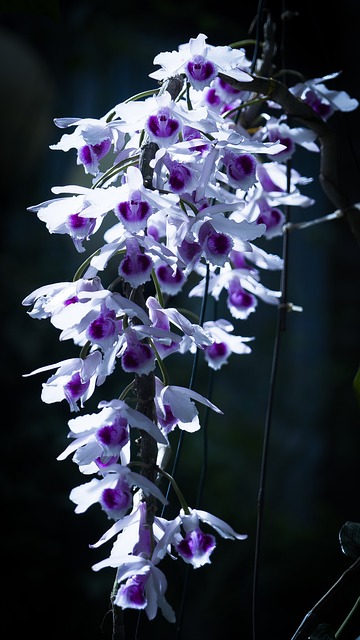bichos da terra 👀 Bichos da Terra: A Profound Exploration of Soil Biodiversity and Its Ecological Significance

Bichos da Terra: A Profound Exploration of Soil Biodiversity and Its Ecological Significance
In the intricate tapestry of Earth’s ecosystems, the often-overlooked realm of soil biodiversity holds paramount importance. Among the myriad organisms that inhabit this subterranean world, the "bichos da terra," or soil-dwelling creatures, play a crucial role in maintaining ecological balance. Understanding these organisms and their contributions to soil health is instrumental in addressing contemporary environmental challenges such as land degradation, climate change, and food security.
The term "bichos da terra" encompasses a diverse array of organisms, including earthworms, nematodes, insects, and fungi, all of which contribute to the dynamic processes of nutrient cycling and soil formation. Earthworms, for instance, are often heralded as nature’s plow, aerating the soil and facilitating water infiltration. Their burrowing activities not only enhance soil structure but also promote the decomposition of organic matter, thereby enriching soil fertility. This symbiotic relationship between soil organisms and plant roots is fundamental for sustaining agricultural productivity and ecosystem resilience.bichos da terra
Furthermore, nematodes, though microscopic, wield considerable influence in the soil ecosystem. These roundworms contribute to the regulation of microbial populations and aid in the decomposition of organic materials. Their predation on bacteria and fungi creates a balanced food web, which is essential for maintaining soil health. In a similar vein, the vast community of soil insects, ranging from ants to beetles, plays a pivotal role in the breakdown of organic matter, facilitating nutrient recycling and promoting plant growth.
The mycorrhizal fungi, another critical component of soil biodiversity, form symbiotic relationships with plant roots, enhancing their ability to absorb water and nutrients. This partnership is particularly vital in nutrient-poor soils, where mycorrhizal networks can significantly increase plant resilience against drought and disease. Such interactions illustrate the intricate connections between soil organisms and plant health, underscoring the need for conservation strategies that prioritize the protection of soil biodiversity.
However, the ecological significance of bichos da terra extends beyond their immediate contributions to soil health. These organisms are sensitive indicators of environmental changes, making them invaluable for assessing soil quality and ecosystem health. A decline in soil biodiversity often signals underlying issues such as pollution, habitat loss, and unsustainable agricultural practices. Thus, monitoring the population dynamics of soil organisms can provide critical insights into the broader ecological impacts of human activities.bichos da terra
In recent years, the scientific community has increasingly recognized the importance of soil biodiversity in the context of climate change. Healthy soils, rich in biodiversity, exhibit greater carbon sequestration potential, serving as a buffer against atmospheric CO2 levels. The restoration of degraded soils through practices that enhance biodiversity, such as cover cropping and reduced tillage, can contribute significantly to climate change mitigation efforts. Moreover, diverse soil ecosystems are better equipped to adapt to changing climatic conditions, ensuring the sustainability of food systems in the face of global challenges.bichos da terra

Despite the evident benefits of bichos da terra, threats to soil biodiversity continue to escalate. Intensive agricultural practices, urbanization, and climate change are exerting unprecedented pressures on these vital organisms. The use of chemical fertilizers and pesticides not only disrupts the delicate balance of soil ecosystems but also leads to a loss of biodiversity that can have cascading effects on food production and environmental health. As such, there is an urgent need for policies that promote sustainable land management practices and prioritize the conservation of soil biodiversity.
Education and public awareness are also crucial components in the effort to protect bichos da terra. Engaging communities in discussions about the importance of soil health and its implications for agriculture and the environment can foster a sense of stewardship and encourage sustainable practices. Initiatives that promote organic farming, agroecology, and permaculture can empower individuals to take action in preserving the intricate web of life beneath their feet.bichos da terra

In conclusion, the bichos da terra represent a cornerstone of ecological integrity and resilience. Their roles in nutrient cycling, soil formation, and ecosystem health are indispensable for sustaining life on Earth. As we move forward in an increasingly uncertain environmental landscape, it is imperative that we recognize the significance of soil biodiversity and take concerted action to protect these hidden treasures. By fostering a deeper understanding of the vital functions of soil organisms, we can pave the way for a more sustainable and resilient future, ensuring that the rich biodiversity of our soils continues to thrive for generations to come.
Fale conosco. Envie dúvidas, críticas ou sugestões para a nossa equipe através dos contatos abaixo:
Telefone: 0086-10-8805-0795
Email: portuguese@9099.com


